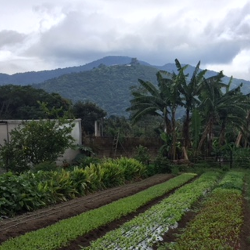“We have always known that heedless self-interest was bad morals, we now know that it is bad economics.” – Franklin D. Roosevelt
The industrial, factory farm, GMO monoculture agricultural model was always intended to benefit a shrinking number of big corporations, mostly chemical and junk food companies.
Monsanto’s claims about “helping farmers” or “feeding the world” are nothing more than carefully crafted public relations messages, unfounded and ungrounded in reality.
Costco’s plans to build the largest poultry factory farm in the U.S. will benefit only Costco—not the chicken farmers who will be locked into lopsided contracts that put them at risk of losing everything. And certainly not the consumers who will get cheap, but drug- and antibiotic-contaminated chicken.
This degenerative food and farming model, built on “heedless self-interest,” is little by little, news article by news article, scientific study by scientific study, being exposed for what it is: a model that has failed consumers, failed the environment, failed economically for all but a few greedy corporations, failed to deliver anything but unhealthy food, polluted waterways, degraded soils.
Who will build a new model, founded on traditional organic regenerative farming practices? Farming practices that work with the Earth’s natural systems, instead of against them? A model that works economically for farmers and local communities, not the Monsanto and Costco types?
A growing army of organic regenerative farmers, around the world, who will feed their local and regional populations—and who will reap the profits and good will of their hard work, instead of seeing their livelihoods eroded by corporate greed.
Who will help those farmers? Conscious consumers who will reject Big Ag and Big Food, and support the farmers and producers who grow healthy food, without fouling the environment.
In the coming weeks and months we hope you’ll join us in building local, community-focused regeneration core groups all over this country. Because it’s up to all of us to create a food and farming system that works for everyone, not just a few greedy corporations.
Your generosity makes this work possible. Thank you.
Donate to the Organic Consumers Association (tax-deductible, helps support our work on behalf of organic standards, fair trade and public education)
Donate to Organic Consumers Fund (non-tax-deductible, but necessary for our GMO labeling legislative efforts)















